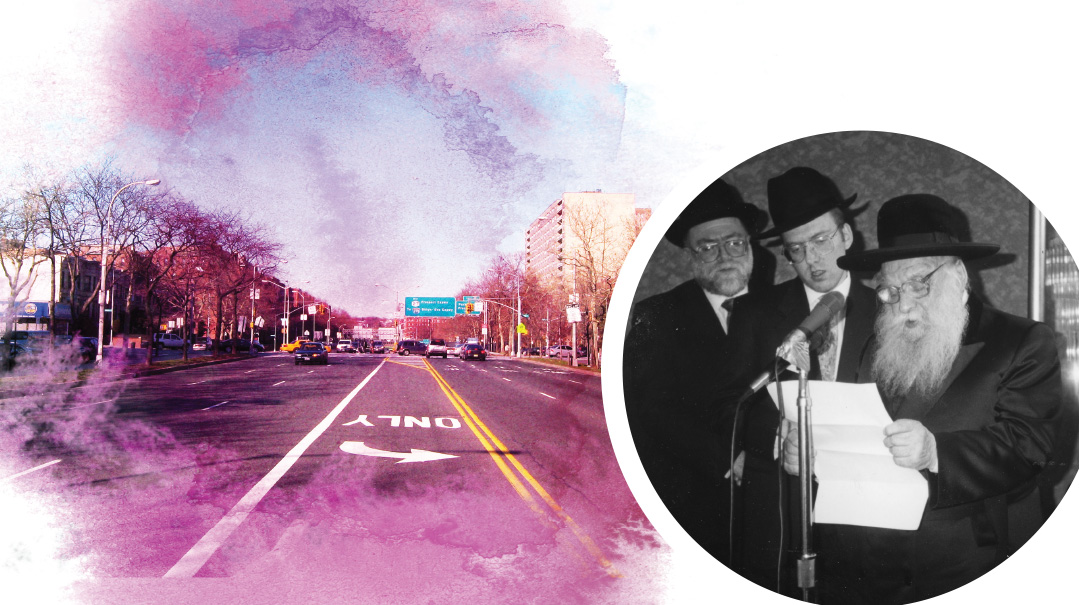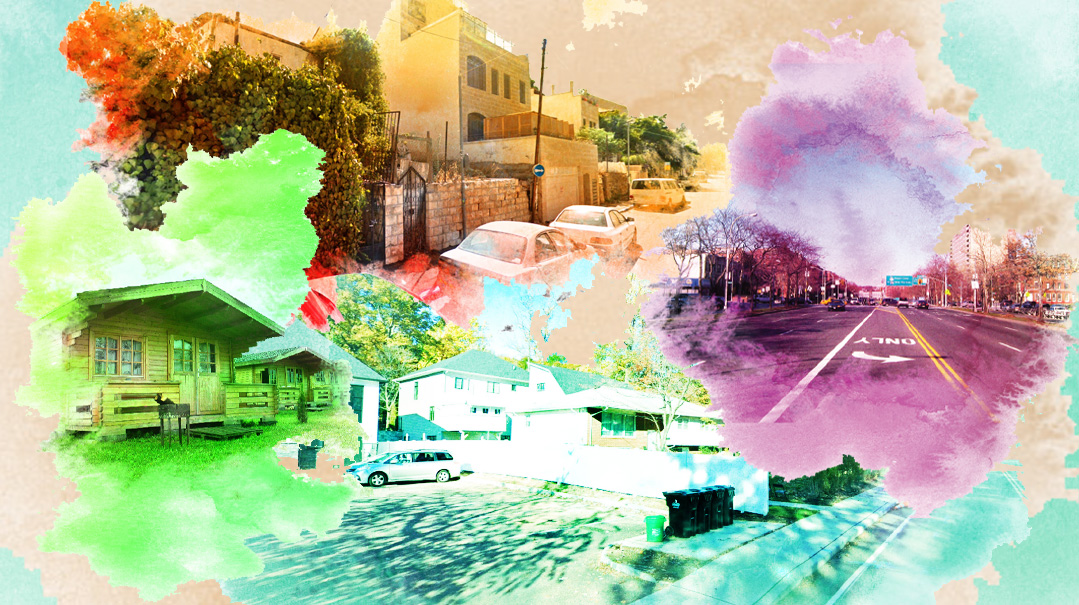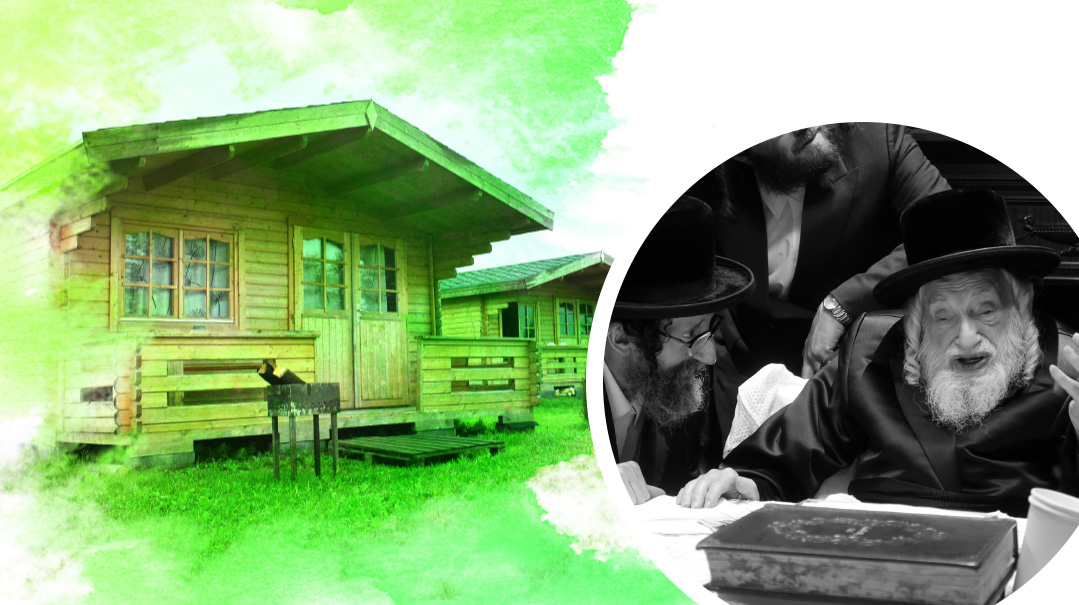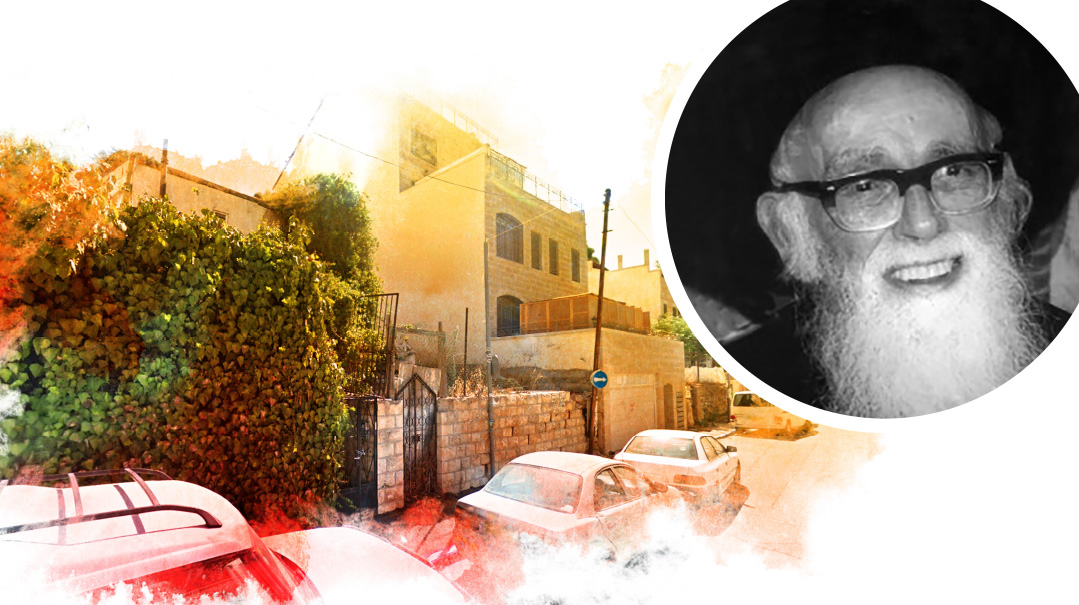Rav Yaakov Kamenetsky — The House at the Bottom of the Hill
| May 31, 2022Rav Yaakov’s house was the lodestar of our family’s spiritual identity
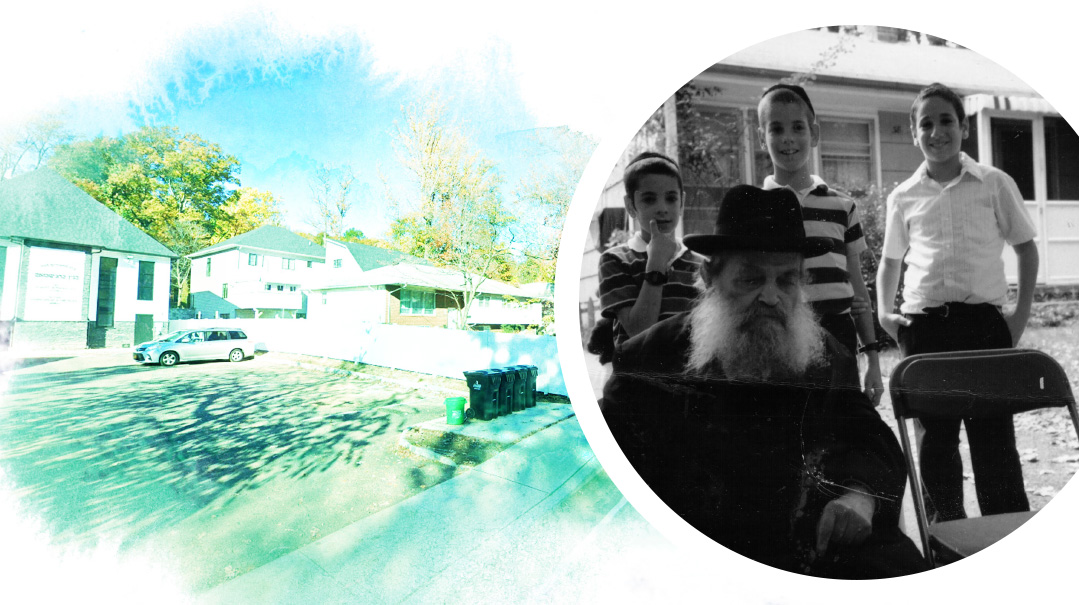
Cleaning out my parents’ home after their passing was a journey of loss and love. The photographs, old papers, and letters, even my father’s toolbox, my mother’s favorite dish — every item was a time machine that transported me between decades and continents on the wings of memory.
It was the albums that were my undoing. A visual history of our family lives in the plastic-covered pages. And scattered throughout, like the flash of so many luminous, distant stars, is the story of my father’s relationship with his rebbi muvhak, Rav Yaakov Kamenetsky ztz”l.
Photos show Rav Yaakov standing in our backyard, siddur in hand, reciting the bircas ilanos on our cherry tree adorned in blossoms of bridal white; Rav Yaakov speaking at my brother’s bris; standing at the window, menorah in the background, at my sister’s vort. (I had forgotten that it was on Chanukah, all those years ago.) Rav Yaakov a few months later, officiating as mesader kiddushin at her wedding. My father bent over, platter in hand, to serve his rebbi at her sheva brachos in our home, his entire being bespeaking awe and reverence, k’eved lifnei rabo, a servant before his master.
There is one more photo, lovingly framed by my mother and displayed for many years on her desk. Looking at it, I can smell the tang of autumn in the air, hear the crunch of the fallen leaves underfoot. In the background is a small house: 38 Saddle River Road. Rav Yaakov’s house. The lodestar of our family’s spiritual identity.
My father was the gabbai of the small minyan that met every Shabbos in Rav Yaakov’s basement. My childhood is inexorably bound with the creak of those steps as I made my way down to daven behind the lace curtains that topped the wooden mechitzos. The Rebbetzin presided over the women’s section, and I often heard the swish of her skirts as she passed by on her way to the front of the room. When I close my eyes, I can hear the melodious baalei tefillah of my youth, Rabbi Shimon Rosengarten, Rabbi Dovid Muehlgay, Rabbi Nochum Frankel; now I am running up the steps to meet my brothers at the door to the kitchen, where they eagerly enter to receive the Rebbetzin’s cookies that Rav Yaakov withdraws from the domed metal cookie jar, with the smiling directive to “mach ah brachah.”
That diminutive house at the bottom of the hill cast a giant shadow all the way up to the top of Albert Drive, where our home stood. Barely a breath was drawn without Rav Yaakov’s guidance. We kids did not need to be taught lessons on the meaning of emunas chachamim; in our father’s reverence, and in such close proximity to the blazing sunlight, we absorbed it by osmosis.
Most of the photos we have, and in fact most photos depicting Rav Yaakov, show him beaming with his characteristic wide smile. This framed photo is different. The autumn leaves on the ground foretell the coming winter of a world devoid of his presence. He is nearing the end, his life force ebbing. Someone has set out chairs on his driveway. A hachnassas sefer Torah will be passing by, heading toward the Vizhnitz beis medrash on Phyllis Terrace. In these days before the composition of “Yamim al Yemei Melech Tosif,” chassidim dancing on top of the sefer Torah truck will spring into “Ohr Zarua Latzaddik Uleyishrei Lev Simchah” as they pass Rav Yaakov sitting in his driveway. My father will come home moved to tears by the kevod haTorah they display toward this quintessential litvishe gadol.
The photo captures life’s eternal paradox as the juxtaposition of youth and age, life waning and life pulsing, is embodied by the smiling children behind Rav Yaakov. They are my brothers and my cousin, standing in their striped shirts, carefree in their youth, almost not conscious of being in the presence of greatness, so natural and habitual it was.
Shortly after this photo was snapped, Rav Yaakov moved to Baltimore to be cared for by his daughter. My father made the trip there with a friend, where they received the last brachah they would hear from him.
The little lawn and the modest house are long gone, paved into asphalt to provide a parking lot for the Gerrer shtibel that stands on the backyard where my younger brother planted flowers and tended to the Rebbetzin’s garden. The carefree boys in striped shirts have grown into serious and accomplished men, widely respected for their Torah and chesed. Rav Yaakov is gone. My parents are gone. Only the memories remain, and the taste and smell and timbre of their chinuch, his presence, and the weekly aliyah l’regel down the hill from our house to his.
Mrs. Suri Cohen is a teacher and writer in Monsey, New York.
(Originally featured in Mishpacha, Issue 913)
Oops! We could not locate your form.

